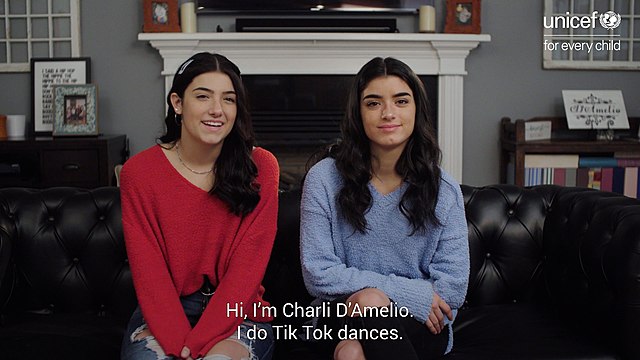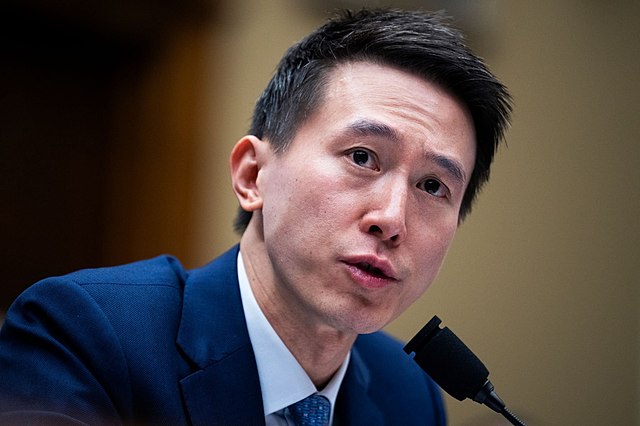Top Image: Tom Williams / Wikicommons
The Chief Executive Officer of TikTok, Shou Zi Chew, might have had to sit through a five-hour-long barrage of questions from US Congress Members. But the 40-year-old Singaporean left Capitol Hill as the people’s champion, winning the public’s hearts—TikTokers and fellow countrymen alike.
Admirers have gone so far as to make thirsty fancams for him. But at its roots, Shou Chew (as TikTokland endearingly calls him) is the CEO of a tech behemoth looking to dominate the global social media landscape. Simping for someone who’s basically a company man is not it.
ADVERTISEMENT
It’s nice to see a Singaporean on a global stage, yes, but let’s not forget that he’s also the man to hold responsible for the pitfalls of TikTok.
TikTok is plagued with the same problems its predecessors face: Privacy concerns, data collection, security vulnerabilities. But its bread-and-butter mechanics—short-form videos ranging from three seconds to ten minutes—and its frighteningly addictive algorithm introduce a new suite of unprecedented problems Singapore has yet to face.
The mind-reading algorithm, tasked to deliver an endless stream of personalised content for users, is perhaps the key reason behind TikTok’s rising popularity. The US has 150 million monthly active users on Tiktok alone—the country is one of TikTok’s biggest markets.
But it also raised concerns among US lawmakers, prompting a summoning of Shou Chew to Washington to answer questions about TikTok’s policies.
‘Clarifying company policies’ is the pretext. The bigger picture: Messing with TikTok, which belongs to Chinese tech giant ByteDance, is simply part of an ongoing political tussle between the US and China.
US congress members, from behind tables perched on raised platforms, stared down the singular Shou Chew, seated just opposite. Questions concerning China’s influence over the app arrived in force. Shou Chew responded to the barrage with an even hand, for the technology company was working overtime to guarantee its place in the US’ social media landscape.
People quickly pointed out that Shou Chew was summoned for what seemed like a public interrogation instead of a committee hearing. Others considered the hearing a success; the committee had highlighted the need for greater data privacy protections for American citizens.
What could have quickly turned explosive was instead a monotonous, drawn-out session of aggressive questions. Shou Chew, pen in hand, processed the questions calmly and quickly, responded when allowed to, and yielded to the committee when interrupted.
The decorum Shou Chew displayed (others would have lost their heads when asked how TikTok can access home Wi-Fi networks) was applauded by the global public, earning him the title of the new zaddy of TikTok.
The Road to Becoming Zaddy
According to Urban Dictionary, ‘zaddy’ is derived from the much more familiar term ‘daddy’ and refers to a “handsome, fashionable, and sexy man with swag”. The admiration for the newest zaddy on the block, Shou Chew, arrived in droves. Through TikTok fancams no less.
Singaporeans quickly joined in on the wave of admiration, especially on LinkedIn. Shou Chew is a born-and-bred local and it’s not every day a Singaporean testifies in congress, let alone in a hearing which resembles David versus Goliath—Goliath, being the sophisticated mammoth that is the US’ political machinery.
By all conventional metrics, Shou Chew embodies and lives out the quintessential dream of every Singaporean Tiger Mum. After graduating from Hwa Chong Institution, he earned a Bachelor of Economics from the University College London in 2007. Then, he secured a Masters in Business Administration from Harvard Business School.
His CV is no less impressive—Facebook, Goldman Sachs, and Xiaomi are some of the global companies he has worked for. But none of those companies have garnered him as much adulation as the one he is in charge of now. Perhaps, with all of this in consideration, netizens were first pleasantly surprised and then quickly swayed by his lack of pretentious airs.
On another level, Shou Chew’s position as CEO of a global tech company, TikTok, is a story Singaporeans can be proud of: Singapore can produce world-class talents. While only an anomalous data point, the story of Shou Chew stands as anecdotal evidence to counter the narrative that Singapore can only produce many highly-skilled workers, but few trailblazers.
Perhaps, why admiration for Shou Chew is now dialled to an extreme can be boiled down to playing the voice of reason in the face of inane questions. When asked by Representative Brett Guthrie why users can access “illicit drug information” on TikTok but cannot do the same on Douyin (TikTok’s equivalent in China), Shou Chew implied that it was due to differences in countries.
ADVERTISEMENT
“Let me give you an example, congressman. In my home country, Singapore, there is almost no illegal drug content because Singapore has very strict drug laws,” Shou Chew answers. The shade screamed so loud one could almost hear it.

TikTok Through Rose-Coloured Lenses
Shou Chew might be the new zaddy, but that’s beside the point. The key issue is TikTok’s operations, despite some of the US Congress members’ weird, unnecessary questions about China. (Of course, Shou Chew can’t answer, he’s Singaporean).
In an age with a growing political divide between the US and China, of Chinese spy balloons and stealth drones, foreign influence over citizens’ data might actually validate some of the anger the congress members displayed during the hearing.
While Shou Chew answered the questions calmly, subtly portraying the congressional hearing as a wild goose chase, the concerns raised by US lawmakers contain some grain of truth. In 2021, CNBC reported that former TikTok employees disclosed that ByteDance could access TikTok’s American user data. And if that’s possible, what’s stopping them from accessing user data in Singapore too?
The influence that TikTok (and the people who run it) holds shouldn’t be downplayed as well. In 2020, leaked internal documents showed that TikTok moderators were instructed to suppress posts by users judged to be too unattractive, poor, or disabled for the platform. Such harmful filtering only portrayed and promoted a particular standard of attractiveness.
The rise of TikTok stars like Charli D’Amelio was seen as constructing and celebrating a singular standard of beauty and femininity. We risk making that the norm, adding pressure on people to conform to these standards.
All apps want to ensure users stick as long as possible, but it’s especially adhesive for TikTok. And with that in mind, people can game the algorithm.
Just look at sludge content. Sludge content refers to single videos with different clips edited and superimposed onto one another. Think Reddit responses read out over Rocket League gameplay. Or a scene from Family Guy at the top of the screen with Minecraft gameplay at the bottom.
While no official studies have been done to understand the phenomenon’s effects, experts predict that sensory overload reduces people’s attention spans when information is hard to process. Imagine an entire generation of anxious, irritable and depressed people who have trouble sleeping or focusing.

Finding the Red Flags
“Our app is a place where people can go to be creative and curious,” Shou Chew opines in front of the US Congress. Of course, the app is undoubtedly a place for people to find new and interesting things. But zaddy theatrics and media-amplified fandom distract from the real risks of TikTok, or any other social media platform.
ADVERTISEMENT
Shou Chew might stand out from his crowd of peers—Elon Musk and Mark Zuckerberg might be billionaires but the title of ‘zaddy’ eludes them. There are only so many things that money can buy.
Even then, TikTok itself, separated and enclosed in a vacuum far away from the reach of a charismatic CEO, is very much like its predecessors. We won’t stand here and be all “SOCIAL MEDIA BAD”, because it’s not. But the absurdity of jumping on the bandwagon and stan for someone who represents the interests of a corporation with way too much global influence needs to be pointed out.
Who’s to say that the algorithm didn’t socially engineer us all to fall head over heels for Shou Chew? Through rose-coloured glasses, all red flags look like flags.







